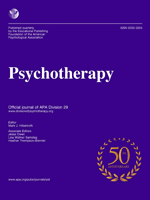
PSYCHOTHERAPY
Scope & Guideline
Shaping the Future of Psychotherapy with Evidence
Introduction
Aims and Scopes
- Cultural Humility and Responsiveness:
The journal emphasizes the importance of cultural humility in psychotherapy, exploring how therapists can enhance their responsiveness to clients from diverse backgrounds. This includes developing scales and frameworks that assess cultural competence and the impact of cultural factors on therapy outcomes. - Therapeutic Alliance and Relationships:
A consistent focus on the therapeutic alliance underpins many studies, examining how the quality of the therapist-client relationship affects treatment outcomes. Various aspects such as alliance rupture and repair, emotional experiences, and relational dynamics are explored. - Innovative Methodologies and Technologies:
The journal frequently incorporates innovative research methodologies, including machine learning and natural language processing, to enhance the assessment and understanding of psychotherapeutic processes. This forward-thinking approach aims to personalize treatment and improve efficacy. - Integration of Spiritual and Religious Dimensions:
There is a notable interest in integrating spiritual and religious considerations into therapeutic practices, recognizing their significance for many clients. The journal publishes research that examines the efficacy of spiritually integrated therapies and their impact on treatment outcomes. - Addressing Systemic and Structural Issues:
The journal highlights the importance of addressing systemic and structural determinants of mental health, such as racism and oppression, within therapeutic contexts. It promotes discussions on how psychotherapy can be adapted to better serve marginalized populations.
Trending and Emerging
- Impact of Systemic Racism and Oppression:
A significant trend is the focus on how systemic racism and oppression affect mental health and therapeutic processes. This includes exploring the experiences of marginalized groups in therapy and developing strategies to address these challenges within clinical practice. - Technological Integration in Therapy:
There is an increasing interest in the use of technology within psychotherapy, such as telehealth and digital interventions. The journal explores how these innovations can enhance therapeutic engagement and improve accessibility for clients. - Mental Health in Diverse Populations:
Emerging themes include the study of psychotherapy among diverse populations, especially LGBTQ+ and racial/ethnic minorities. This focus aims to understand the unique challenges these groups face and to develop tailored therapeutic approaches. - Empirical Research on Emotional Processing:
Recent studies are increasingly examining the role of emotional processing in therapy, including how clients' emotional experiences influence therapeutic outcomes. This trend reflects a deeper understanding of the emotional dynamics within therapeutic settings. - Mindfulness and Compassion-Based Approaches:
Mindfulness and compassion-based interventions are gaining traction, with research exploring their efficacy in enhancing therapeutic outcomes. This trend indicates a growing recognition of the importance of emotional awareness and self-compassion in mental health treatment.
Declining or Waning
- Traditional Psychotherapeutic Approaches:
There seems to be a declining focus on traditional psychotherapeutic approaches in isolation, such as pure cognitive-behavioral therapy (CBT) without integration with other modalities. The trend is moving towards more integrative and eclectic approaches that accommodate diverse client needs. - Generalized Studies on Common Factors:
Research centered solely on common factors in psychotherapy, without consideration of contextual or individual differences, has decreased. The journal is increasingly emphasizing the need for nuanced understandings that consider specific client characteristics and contextual factors. - Single-Dimensional Assessments:
There is a noticeable reduction in the publication of studies that rely on single-dimensional assessments of therapeutic outcomes. The trend favors more comprehensive, multi-dimensional approaches that capture the complexity of therapeutic processes and client experiences.
Similar Journals
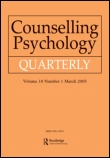
Counselling Psychology Quarterly
Navigating the Complexities of Human BehaviorCounselling Psychology Quarterly, published by Routledge Journals, Taylor & Francis Ltd, is a prestigious journal situated at the forefront of mental health research and practice. With a focus on Applied Psychology, Clinical Psychology, and Psychiatry and Mental Health, this journal serves as a vital resource for researchers, professionals, and students keen on exploring the intricacies of therapeutic practices and psychological support systems. The journal boasts an impressive rank in the Scopus database, being positioned 54th in Clinical Psychology and 143rd in Psychiatry and Mental Health, reflecting its significance in the wider academic community. Operating since 1988, the journal continues to publish high-quality, peer-reviewed articles that contribute to the evolving discourse in counseling methods and innovations. While it does not currently offer open access, readers can access its wealth of knowledge through institutional subscriptions. With its commitment to advancing understanding and practice in the field, Counselling Psychology Quarterly stands as an essential publication for those dedicated to the study and practice of psychology.
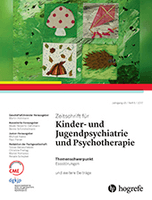
ZEITSCHRIFT FUR KINDER-UND JUGENDPSYCHIATRIE UND PSYCHOTHERAPIE
Bridging disciplines for a brighter future in youth psychiatry.ZEITSCHRIFT FUR KINDER-UND JUGENDPSYCHIATRIE UND PSYCHOTHERAPIE, published by HOGREFE AG in Switzerland, stands as a pivotal platform for the dissemination of research in child and adolescent psychiatry and psychotherapy. With an ISSN of 1422-4917 and E-ISSN 1664-2880, this journal has contributed significantly to the field since its inception in 1996. It operates with a focus on the intricacies of mental health among young populations, offering insights that cater to professionals, researchers, and students alike. The journal, categorized in the Q3 quartile across Clinical Psychology, Pediatrics, and Psychiatry, benefits from a comprehensive approach that embraces multidisciplinary perspectives. Although currently not available as an Open Access option, it remains an important resource for those engaged in advancing the understanding and treatment of mental health issues in children and adolescents. Its continued relevance is underscored by a prospective converged publication timeline extending to 2024, ensuring that the latest findings and theoretical advancements reach diverse audiences committed to improving the mental health landscape for younger demographics.
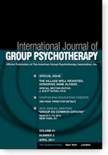
INTERNATIONAL JOURNAL OF GROUP PSYCHOTHERAPY
Transforming Lives through Group PsychotherapyThe INTERNATIONAL JOURNAL OF GROUP PSYCHOTHERAPY, published by ROUTLEDGE JOURNALS, TAYLOR & FRANCIS LTD, serves as a vital conduit for advancing the field of group psychotherapy. Established in 1961, this esteemed journal features groundbreaking research and critical discussions that explore the theoretical foundations, empirical studies, and practical applications of group treatment modalities. With an impact factor reflecting its solid standing in Clinical Psychology—ranking in Q3 with respect to its peers and occupying the 46th percentile in Scopus rankings—the journal is committed to providing a platform for innovative ideas and evidence-based practices that resonate with researchers, practitioners, and students alike. Although not an open-access publication, the journal ensures broad dissemination of knowledge in the field, helping to bridge the gap between academic research and clinical practice. As the landscape of psychology continuously evolves, this journal stands out as an indispensable resource for professionals dedicated to enhancing group therapeutic approaches through collaboration and shared insight.
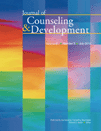
JOURNAL OF COUNSELING AND DEVELOPMENT
Bridging Theory and Practice in Applied PsychologyJOURNAL OF COUNSELING AND DEVELOPMENT, published by Wiley, stands as a prestigious and influential resource in the field of applied psychology. With an ISSN of 0748-9633 and E-ISSN 1556-6676, this journal has been dedicated to advancing the practice and understanding of counseling and development since its inception in 1984. With a solid impact factor that places it in the Q2 category of applied psychology journals and a commendable Scopus rank of 80 out of 249, it is widely regarded among researchers and practitioners alike. Published in the United States, this journal delivers peer-reviewed research that addresses theoretical and practical issues relevant to counselors and educators, making it an essential resource for staying updated on the latest developments in the field. With a commitment to fostering scholarly debate and promoting advancements in counseling practices, the JOURNAL OF COUNSELING AND DEVELOPMENT is a pivotal platform for all dedicated to enhancing human development and mental health.
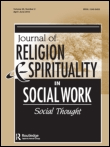
JOURNAL OF RELIGION AND SPIRITUALITY IN SOCIAL WORK
Navigating the Intersection of Belief and ServiceJOURNAL OF RELIGION AND SPIRITUALITY IN SOCIAL WORK, published by ROUTLEDGE JOURNALS, TAYLOR & FRANCIS LTD, is an essential interdisciplinary platform that explores the intersections of spirituality, religion, and social work practice. With an emphasis on bringing forward empirical research and theoretical discussions, this journal has carved a distinct niche within the academic arena since its inception in 2004. Recognized in 2023 with a Q1 ranking in Religious Studies, it signifies its importance and influence in the field, complemented by its standing as Q3 in Public Health and Q4 in Social Work. The journal caters to a diverse audience, including researchers, practitioners, and students, dedicated to advancing knowledge and practice in social work through the lens of faith and spirituality. Although it operates under a subscription model, its reach and impact are unequivocal, providing valuable insights that resonate deeply within both academic and professional communities.

PSICOTHEMA
Elevating Psychological Discourse and DiscoveryPSICOTHEMA is a premier open-access journal dedicated to the field of psychology, published by the COLEGIO OFICIAL DE PSICOLOGOS DE ASTURIAS in Spain. With an impressive impact factor and a distinguished presence in the academic community, PSICOTHEMA has established itself as a vital platform for disseminating innovative research and insights in psychology since its inception in 1989. The journal embraces a broad scope, covering diverse topics within psychology and ranks within the top quartile (Q1) in the 'Miscellaneous Psychology' category as of 2023, making it a key resource for researchers and practitioners alike. With a current Scopus rank of #32 out of 216 in General Psychology and an 85th percentile ranking, it underscores PSICOTHEMA’s commitment to quality and relevance. Researchers, professionals, and students are encouraged to explore its extensive repository of articles, which promotes both theoretical knowledge and practical applications in the ever-evolving landscape of psychological science.

Revista de Psicoterapia
Unveiling New Horizons in Psychological PracticeRevista de Psicoterapia is a prominent scholarly journal dedicated to the fields of psychotherapy and psychological practice, published by REVISTA PSIQUIATRIA & PSICOLOGIA HUMANISTA, S L. With its ISSN 1130-5142 and E-ISSN 2339-7950, the journal serves as a vital resource for researchers, practitioners, and students who seek to explore innovative therapeutic practices and advancements in the field of mental health. Although specific impact metrics like HIndex or Scopus rankings are currently unavailable, the journal is recognized for facilitating meaningful discourse on psychotherapy, showcasing empirical research, clinical studies, and theoretical advancements. It aims to promote evidence-based practices and interdisciplinary collaboration in the mental health community. As an essential platform in psychotherapy research, Revista de Psicoterapia fosters an understanding of psychological phenomena while addressing contemporary challenges in psychotherapy, making it indispensable for anyone committed to the advancement of psychological well-being.

PSYCHOLOGY AND PSYCHOTHERAPY-THEORY RESEARCH AND PRACTICE
Empowering Minds with Cutting-Edge InsightsPsychology and Psychotherapy - Theory, Research and Practice is a premier academic journal published by Wiley, which has established itself as a critical platform for the dissemination of cutting-edge scholarship in the fields of psychology and psychotherapy. With a strong emphasis on both theoretical frameworks and practical applications, this journal serves a diverse audience that includes researchers, clinicians, and students alike. The journal holds a prestigious impact factor and consistently ranks in the Q1 category across multiple fields, including Clinical Psychology, Developmental and Educational Psychology, and Psychiatry and Mental Health. With a rich history dating back to the 1920s and ongoing contributions until 2024, Psychology and Psychotherapy provides open access options to ensure widespread dissemination of knowledge. By publishing empirical studies, reviews, and theoretical propositions, the journal aims to advance the understanding of psychological processes and the efficacy of therapeutic practices, thereby playing a vital role in the ongoing discourse within the mental health community.

International Journal of Systemic Therapy
Exploring innovative pathways in therapy.International Journal of Systemic Therapy, published by Routledge Journals, Taylor & Francis Ltd, serves as a critical platform for the dissemination of innovative research within the fields of clinical psychology and psychiatry. With an impact factor that reflects its developing influence (as evidenced by its Q4 quartile rankings in both Clinical Psychology and Psychiatry and Mental Health), this journal provides a space for practitioners and researchers to explore and contribute to systemic approaches in therapy from 2021 to 2024. The journal supports open access, ensuring broad accessibility and engagement with its findings. As it covers both theoretical and applied aspects of systemic therapy, it is poised to be a vital resource for those looking to advance their understanding and practice in mental health disciplines.

JOURNAL OF CHILD PSYCHOTHERAPY
Fostering Dialogue in Pediatric Mental Health Research.JOURNAL OF CHILD PSYCHOTHERAPY, published by Routledge Journals, Taylor & Francis Ltd, is a pivotal platform for the dissemination of research and practice in the fields of child psychotherapy, clinical psychology, and pediatric mental health. With a rich history spanning from 1963 to 2024, this journal engages a diverse audience of researchers, practitioners, and students, striving to advance theoretical and practical knowledge regarding the psychological well-being of children. Although currently classified in the lower quartiles within its categories—Clinical Psychology (Q4), Pediatrics, Perinatology and Child Health (Q3), and Psychiatry and Mental Health (Q4)—it serves as an important conduit for emerging ideas and findings, encouraging dialogue and innovative approaches to child mental health. While it does not offer open access, the journal's contributions are invaluable for those committed to understanding and enhancing child therapy practices. Researchers interested in the intersection of psychological practices and pediatric health will find the journal’s focused scope particularly relevant and impactful.